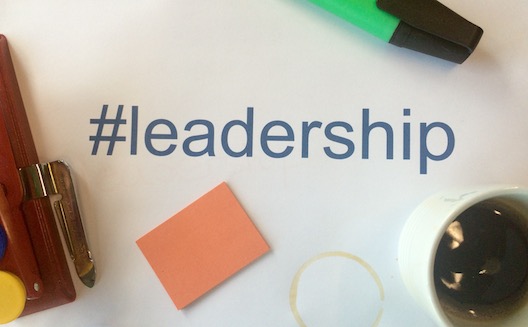5 leadership lessons from the trenches

When Lebanon's Hala Hanna graduated from the World Economic Forum (WEF) Global Leadership Fellows program in June, she was asked by her class to give the valedictorian speech.
Being from the BuzzFeed generation, she chose a list - her personal ‘5 lessons from a 3 year leadership program’ - which she’s shared with Wamda.

Image designed by the author
Lesson 1: follow the rules of improvisation
For one of our modules, we spent a week in the sweltering heat of the Columbia School of Arts Theatre in New York learning some of the rules of improvisation, which work beautifully for leadership too:
- Listen: on stage and at work, we learned over and again that listening is our best guide to getting things done. One simulation we did later divided us into three groups: lower, middle and upper management. It quickly became clear that if middle management was unable to effectively listen and then send that information up and down the business, it had no reason to exist.
- Trust others: in improv, if you’re scared, they tell you to look into your partner’s eyes for reassurance. None of us has gotten where we are on our own. In the WEF program we worked with each other for over more than two years. It made us less alone, more able to be vulnerable and therefore more open to learn and to change.
- Make big choices early and often: sometimes for people with glittery résumés and a collection of university degrees, the biggest liability is a need to succeed. This can push you towards making safer choices instead of taking the risky road… which links to the last rule:
- Say ‘yes, and’: ‘yes’ is about living in the moment, accepting our surroundings and circumstances. The ‘and’ is where we exert our own influence on that.
If we make big choices that are informed by what we hear from people we trust, take in whatever life throws at us and boomerang it back with something of our own, we are bound to make a dent in the world.
Hala Hanna (Image via Hala Hanna)

Lesson 2: embrace the unpredictable
The world is changing in ways none of us can predict and we must constantly adapt.
Big fish in a little pond, little fish in a big pond – today, size no longer matters. What matters is how fast we can swim, and having the contextual awareness to realize that what surrounds us is water – not an easy feat for fish. To be comfortable with restlessness and discomfort, to embrace the unpredictability of the learning journey that life is, are leadership must-haves.
Lesson 3: be a good follower
This might sound counterintuitive, but few things bring its importance home as much as the park full of people seated having a picnic: suddenly, a random guy stands up and starts dancing like crazy. After a few uncomfortable seconds, guy number two stands up and starts dancing as well. Five minutes later the whole park is dancing. If you think about it, it is guy number two who turned the dancer from a crazy person to the leader of a movement.
There is huge power in whom we choose to follow and which ideas we choose to enable.
Lesson 4: keep throwing in the punches
During the three years I spent with my class, life hit some of us in the face with a brick. For some it was the tragedy of losing a loved one, or getting fired, or struggling through depression. Seeing my fellows get back up, and punch back with grace has been the biggest inspiration.
Lesson 5: rise to the challenge
The civil war in Lebanon raged until I was five years old, forcing my family to move from one relative’s house to another in search for safety.
My parents did everything they could to shield us from the angst of not knowing whether we would be reunited by dinner time. These situations turn into a game of pretence: parents pretend they’re giving us a pass to skip school and play with cousins, and kids pretend they don’t see through their parents’ anxiousness.
Now, unlike kids, we cannot pretend that we don’t know what’s going on. Those of us graduating from the program, and many of you readers, have lucked out - in opportunity, privilege and talent. With luck comes obligation; a debt to those less fortunate.
The question is now how we can use this luck to improve the lot of those who have no power in our markets and no voice in our systems. How we can put our creativity at the service of making capitalism work better for all of us. And how, no matter which challenge it is that we chose for ourselves, we are rising to it every day.


